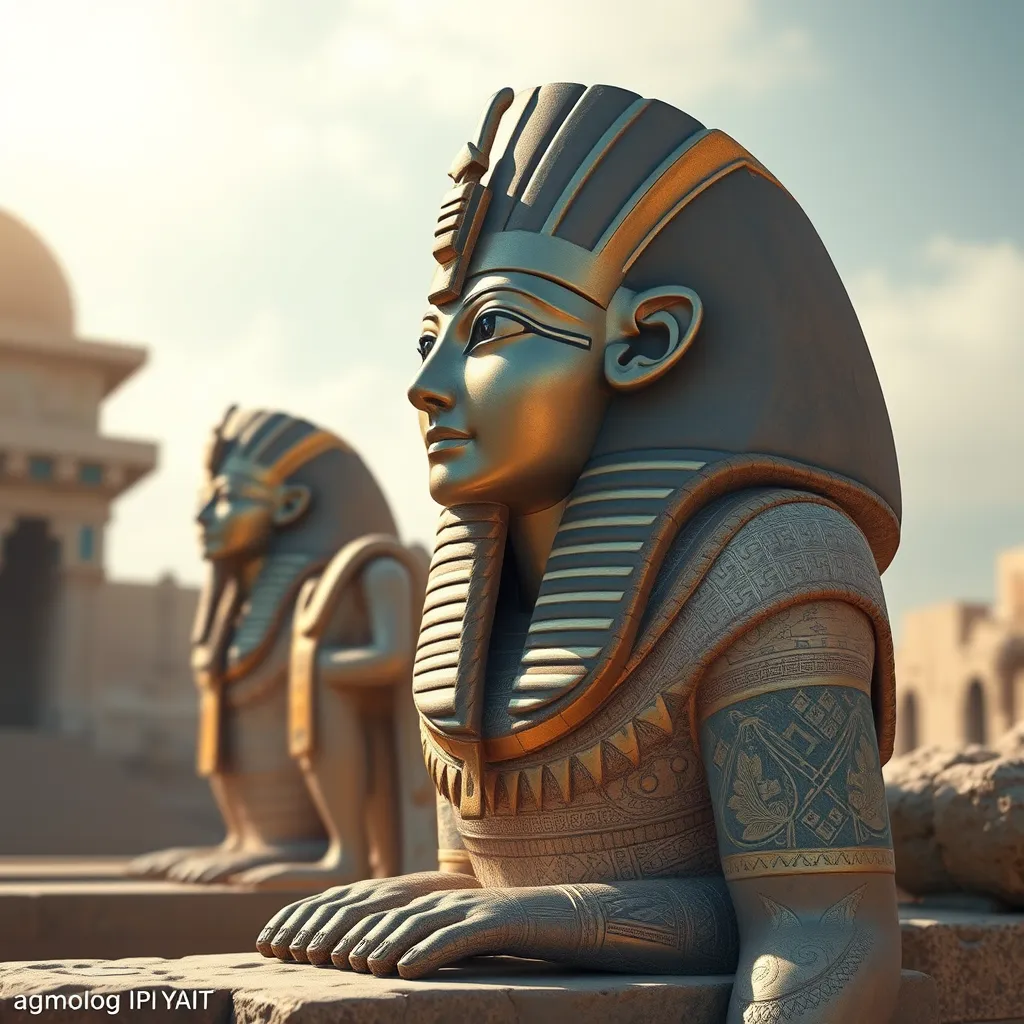The Rise and Fall of the Gods: The Evolution of Egyptian Mythology and its Influence on Ancient Egyptian Culture
I. Introduction
Egyptian mythology is one of the most intricate and fascinating belief systems in human history. It encompasses a rich tapestry of gods and goddesses, creation myths, and complex rituals that significantly influenced ancient Egyptian culture. The interplay between mythology and the daily lives of the Egyptians is a testament to how deeply these beliefs were woven into the fabric of their society.
This article aims to explore the evolution of Egyptian mythology over the millennia and its profound cultural implications. By examining the origins, key deities, societal roles, and the eventual decline of these beliefs, we can gain a deeper understanding of the ancient Egyptians and their worldview.
II. The Origins of Egyptian Mythology
Egyptian mythology has its roots in the pre-dynastic beliefs of the early Egyptians, who practiced animism—the belief that spirits inhabit natural objects and phenomena. This connection to nature laid the groundwork for the development of more complex religious systems.
As society evolved, the Egyptians began to personify natural forces and entities, leading to the emergence of a pantheon of deities. Key factors that influenced this myth formation included:
- Geography: The Nile River’s annual flooding was seen as a divine act, leading to the worship of gods associated with fertility and agriculture.
- Social Structure: The rise of a centralized state and the importance of the pharaoh as a divine ruler shaped the mythology surrounding kingship.
III. Key Deities and Their Roles in Society
Among the gods and goddesses of ancient Egypt, a few stand out due to their significance and the roles they played in society:
- Ra: The sun god, representing light, warmth, and growth. Ra was central to the Egyptian understanding of the cosmos.
- Osiris: The god of the afterlife and resurrection, Osiris’s story symbolizes the cycle of life, death, and rebirth.
- Isis: The goddess of magic and motherhood, Isis was revered for her protective qualities and her role in the resurrection of Osiris.
The creation myths surrounding these deities were fundamental to understanding life and death in ancient Egypt. The belief in an afterlife was profound, with elaborate burial customs and tomb constructions reflecting the significance of these myths.
The relationship between the deities and the pharaoh was also paramount. Pharaohs were viewed as living gods, intermediaries between the divine and the mortal realm, which reinforced their authority and the need for religious devotion.
IV. The Evolution of Myths Through Dynastic Periods
As Egypt transitioned through the Old, Middle, and New Kingdoms, mythology underwent significant changes. Each dynasty brought its own interpretations and adaptations of the existing myths:
- Old Kingdom: Emphasis on pyramid building and the afterlife; deities like Osiris gained prominence.
- Middle Kingdom: A period of political instability led to a re-evaluation of the gods and the introduction of new myths.
- New Kingdom: Expansion and conquest introduced foreign deities, leading to a syncretism that blended local and imported beliefs.
The influence of foreign cultures, particularly during periods of conquest and trade, resulted in the synthesis of mythologies. This blending created a more diverse religious landscape, reflecting the dynamic nature of Egyptian culture.
V. Mythology and Daily Life in Ancient Egypt
Mythology was not just a collection of stories; it was a living aspect of daily life for ancient Egyptians. Religious practices and rituals were deeply intertwined with their myths:
- Rituals: Daily offerings to gods, elaborate festivals, and rites of passage were common, allowing individuals to connect with the divine.
- Art and Architecture: Temples, tombs, and artifacts often depicted mythological scenes, illustrating the gods’ roles in human affairs.
- Festivals: Celebrations like the Opet Festival honored the gods and reinforced the connection between the divine and the pharaoh.
These practices not only reinforced community bonds but also ensured the continuation of the gods’ favor, which was essential for the prosperity of the land.
VI. The Decline of Traditional Beliefs
Despite the rich tapestry of Egyptian mythology, traditional beliefs began to wane following the introduction of monotheism and the rise of Christianity:
- Monotheism: The rise of Christianity in the 1st century CE presented a direct challenge to polytheistic beliefs, gradually leading to the decline of traditional worship.
- Political Changes: The shifting power dynamics, especially with the Roman conquest, led to the suppression of old religious practices.
- Modernization: The growth of scientific understanding and secular thought contributed to the fading of ancient myths.
As a result, many myths that once held great significance were relegated to the past, replaced by new belief systems and cultural practices.
VII. Legacy of Egyptian Mythology in Contemporary Culture
Despite the decline of traditional beliefs, Egyptian mythology continues to captivate and inspire contemporary culture:
- Art and Literature: Modern artists and writers draw upon Egyptian mythology for inspiration, creating works that reinterpret ancient stories for contemporary audiences.
- Interpretations and Adaptations: Films, novels, and games often incorporate elements of Egyptian mythology, bringing these ancient stories to new generations.
- Archaeology and Scholarship: Ongoing research and discoveries continue to shed light on ancient beliefs, enriching our understanding of Egyptian mythology.
The enduring legacy of these myths demonstrates their timeless appeal and relevance in exploring themes of existence, morality, and the human experience.
VIII. Conclusion
In summary, Egyptian mythology has undergone a profound evolution, reflecting the cultural, social, and political changes of ancient Egypt. Its significance extends beyond mere stories; it shaped the lives and beliefs of a civilization that thrived for millennia.
The legacy of these ancient beliefs endures, reminding us of the importance of mythology in understanding human culture and the complexities of our existence. As we continue to explore and reinterpret these myths, we find connections to our own lives and the universal themes that define humanity.




